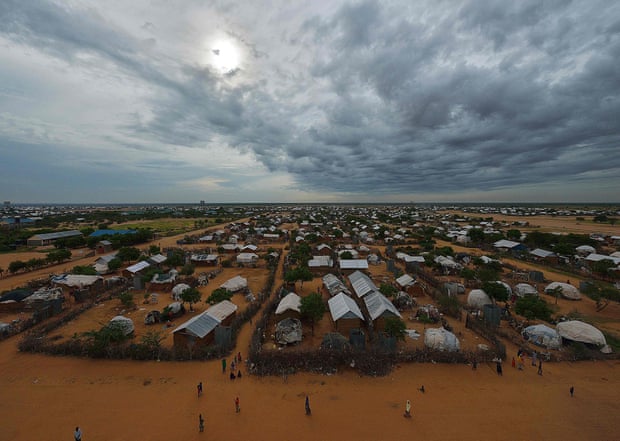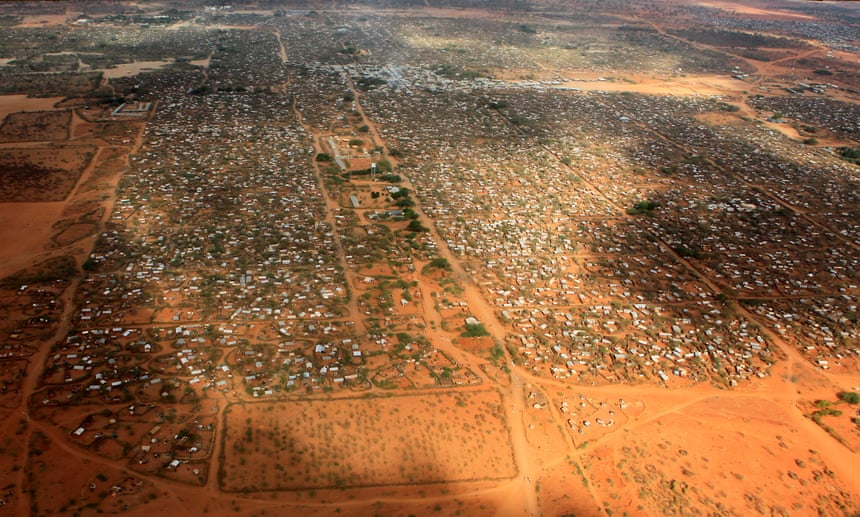Ministers had acted beyond their powers by ordering the closure of the sprawling Dadaab complex, the judge, John Mativo, ruled. The government’s decision specifically targeted Somali refugees as an act of group persecution, he added, and was illegal, discriminatory and therefore unconstitutional.
President Uhuru Kenyatta’s government had not proved Somalia was safe for the refugees to return, Mativo said. A separate government order to shut down its refugee department was also “null and void”.
Warsame Abdihakim Mohamed, who has lived in Dadaab since fleeing war in 1992, said he hoped the government would comply with the court ruling.
“This is good news,” said the 37-year-old, who has set up one of the largest and most popular restaurants in Dadaab’s satellite Hagadera camp. “We hope that eventually, those of us who have invested in the country will be left to stay.”
Margaret Akoth, who works for an education NGO in Dadaab, said she hoped the decision would encourage donors to continue supporting humanitarian efforts in the camp. “Our morale has been low because we have been working with the threat of camp closure over our heads. Now we are a bit reassured,” she said.
Rights groups who have long opposed closing the camp, which is situated near the Somali border, said the ruling was a landmark moment.
Amnesty International’s regional director, Muthoni Wanyeki, described it as a historic day for refugees who were at risk of being subjected to serious rights abuses had they been returned to Somalia.
“This ruling reaffirms Kenya’s constitutional and international legal obligation to protect people who seek safety from harm and persecution,” Wanyeki said.
Some Kenyan officials have argued that the camp has been used as a recruiting ground for the al-Shabaab terror group, and as a base for launching attacks inside Kenya, though they have not provided conclusive proof.
Mwenda Njoka, a spokesperson for Kenya’s ministry of interior, said: “Our reasons for closing the camp are still valid. The camps are still a haven for terrorists. We intend to appeal the ruling.”
The high court ruling came in response to a petition by two Kenyan human rights organizations, Kenya National Commission on Human Rights and Kituo Cha Sheria, supported by Amnesty International, which challenged the constitutionality of the government’s directive to shut the Dadaab complex.
The camp was initially due to be closed on 30 November, but the government announced a six-month delay on “humanitarian grounds”.

Aerial view of the eastern part of the Dadaab refugee camp. Photograph: Tony Karumba/AFP/Getty
The population in the Dadaab refugee camps is believed to be approximately 260,000, with most of the residents of Somali origin.
At the height of the Somali humanitarian crisis in 2011, the site’s population had increased to close to 500,000 people. The camp is a massive complex made up of five satellite camps: Dagahaley, Ifo Main, Ifo 2, Kambioos & Hagadera.
Donald Trump’s temporary ban on travel to the US from seven majority-Muslim countries, including Somalia, had put added pressure on the Dadaab refugees. Last weekend, about 140 of the Somali refugees who had been on the brink of resettling in the US were sent back to Dadaab instead.
Laetitia Bader, Africa researcher at Human Rights Watch, said: “After months of anxiety because of the camp closure deadline hanging over their heads, increasingly restricted asylum options and the recent US administration suspension of refugee resettlement, the court’s judgment offers Somali refugees a hope that they may still have a choice other than returning to insecure and drought-ridden Somalia.”
Al-Shabaab has carried out several attacks in Kenya, which sent troops to Somalia in 2011 to fight the militants. These include the September 2013 attack on Westgate mall that killed 67 people, and the 2015 attack on Garissa University that killed 148 people, mostly students.
→ Source






















